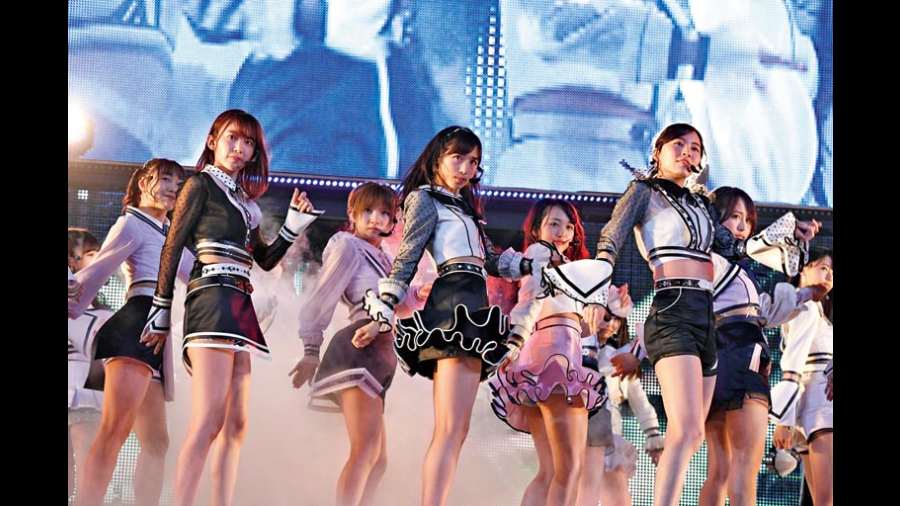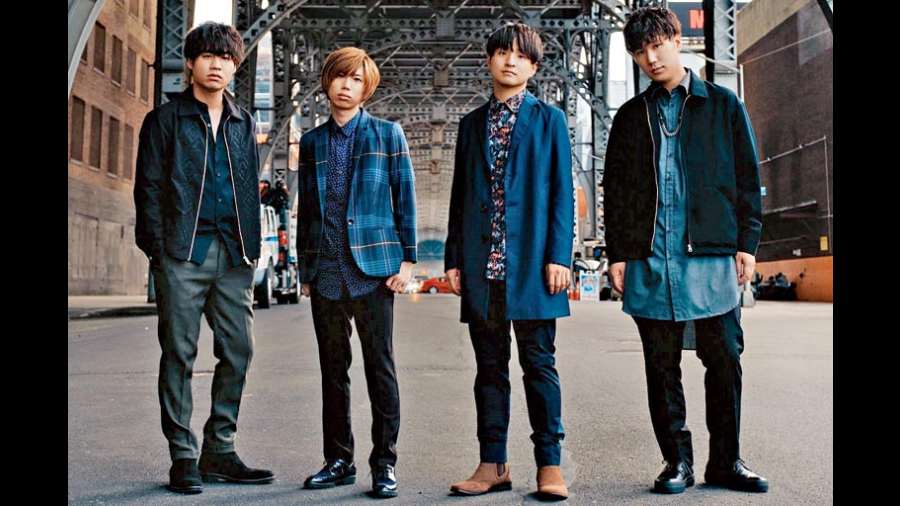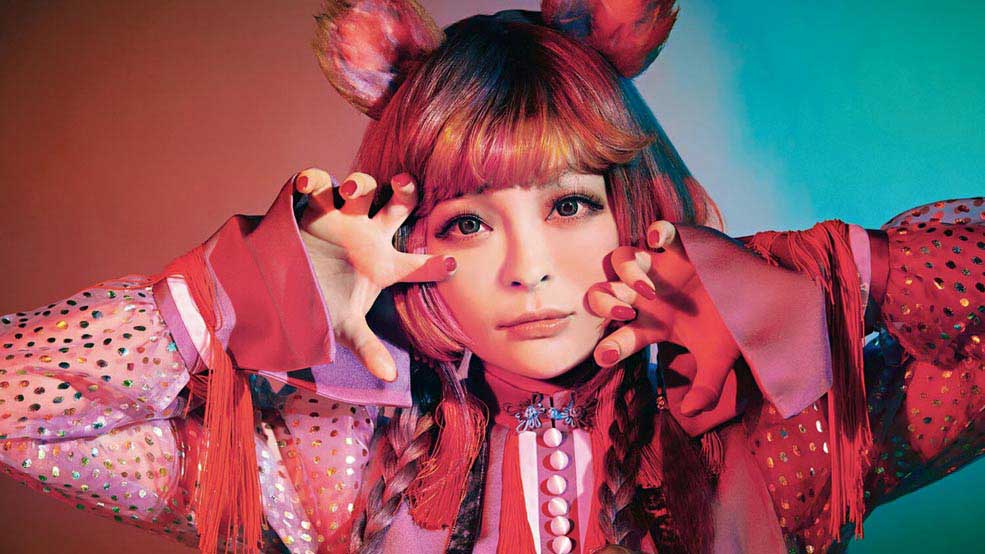If you have been on Instagram Reels for the past year or so, chances are that you have heard YOASOBI’s Into the Night or Miki Matsubara’s Stay with Me. While the former has quite an unusual story woven within its lyrics, the latter is actually a song from 1980 that famously resurfaced via TikTok. Evidently, there has been an increasing interest in J-pop or Japanese pop music. In recent years, there has been quite a rise in popularity of Asian entertainment industries — with Korean content namely K-pop and K-dramas grabbing eyeballs globally. J-pop or Japanese pop is grabbing listeners too and is fast catching up. Here’s what you need to know about the world of J-pop.
Strong foundation
Although there has been a recent resurfacing of old J-pop classics as well as interest in new musical acts, J-pop or Japanese pop is certainly not a new phenomenon. In J-pop, what one finds is often not just the polished pop sound that is largely found in the Western pop industry, but rather an amalgamation and blend of various genres including but not limited to ballads, rock and metal influences. The term J-pop itself emerged as a rather umbrella term from the late 1980s.The origins of Japanese music at large, however, can be traced all the way back to the 1920s, with jazz, classical tunes, rock and eventually pop emerging as dominating genres across the decades.
Japan, having the second biggest music industry in the world, has a booming domestic music market that readily consumes the music produced by its native artistes. In fact, Western pop musicians, or even other Asian music artistes, can have a hard time breaking into the Japanese market due to the huge popularity of the domestic artistes. Over the years since it has been popularised, Japanese pop has continued to retain a distinctive sound influenced by traditional Japanese elements as well as a unique blend of various genres. Perhaps, it is this distinctive sound that has led J-pop to have lesser international interest as compared to other genres like K-pop, which has much more Western influences. Nevertheless, J-pop continues to garner fans across the globe, who not only listen to modern tunes but also delve into more nostalgic records, from groups like Babymetal and AKB48 to solo artistes like Mariya Takeuchi and Miki Matsubara, who dominated the 1980s.
J-pop now
J-pop is often characterised by high-pitched vocals supported by unique key changes and a blend of influences that can be hard to box into strict genres. In recent times, there has also been a rising interest in the revival of retro Japanese sounds, not unlike the retro wave that was seen in the Western pop industry throughout 2020. The visual aspect of J-pop is memorable as well, often characterised by cuteness, or the kawaii culture of Japan. It often comprises bright and colourful outfits and accessories and even eccentric hairstyles and exaggerated hair accessories like singer Kyary Pamyu Pamyu is often seen sporting. In fact, the distinctive fashion trends and visuals that are associated with J-pop, especially Japanese bubblegum pop, make for a unique audio-visual experience.
J-pop is also popular for its lyricism, which is often quite deep, seems personal, is relatable and explores a range of themes, especially those surrounding mental health. Quite uniquely and refreshingly, J-pop songs having relatively darker themes through their lyrics, often tend to have comparatively more cheerful sounds and music.
Japanese idol groups are popular as well, with many famous girl as well as boy groups performing through the decades. The 1980s was especially known as the ‘Golden Age of Idols’, because it is when Japanese idol groups began to gain popularity. Today, there are apparently over 3,000 groups that are active in the Japanese idol industry. The 2010s saw a rapid growth in the “idol industry” as well, with the Internet acting as a handy tool to facilitate the music to reach a wider audience. Coined as the “Idol Warring Period”, it also saw an increased focus on fan interactions with the idol groups and artistes. The Tokyo Idol Festival, the biggest idol concert festival in Japan, started in 2010 as well.
Aimer

Singer-songwriter Aimer, whose name is derived from the French word meaning “to love”, is a popular J-pop solo artiste. Her songs and vocals are famous for being heavy with emotions and nostalgia. Her songs have also been featured in many anime soundtracks over the years.
AKB48

They are one of the biggest J-pop groups, literally and figuratively. With 48 members present in the group at a time (yes, it is right in their name!), the group is mainly divided into three teams which take turns to perform, often simultaneously, at different events. In a unique turn of concepts, the group has a permanent theatre where their performances are showcased on a regular basis. The group members graduate and leave as well, making the band to have rotating members. They also have many sister groups based in other countries, including India.
Official Hige Dandism

Commonly known as Dandism, this J-pop boy band has been around since 2012 with a string of hits. They even play their own instruments! Undoubtedly one of the biggest J-pop acts currently, their 2019 single Pretender and 2021 song Cry Baby (also featured in the anime, Tokyo Revengers) have become huge hits.
Hikaru Utada

Legendary pop star from Japan, it has been long since Hikaru Utada burst onto the music scene but she is still a reigning presence in the country’s music industry. Not only is she known for her self-written and even produced songs, but also for her beautiful music videos. Moreover, her extensive discography lets listeners explore a number of different genres and sounds.
Yuuri

This 27-year-old singer-songwriter is popular for his smooth pop vocals with a characteristic rasp, and melodious singles with heartfelt lyrics. He has had a prolific time, enjoying a lot of success with his single Dryflower. His other single Infinity was recently featured as the ending theme of the 2021 anime series SK8 the Infinity.
YOASOBI

This music duo is fast gaining popularity for their fresh pop sound and songs that often tell stories, many of them darker than they actually sound like. Since their debut in 2019, they have had a string of hits. You might have heard their song Into the Night which gained fast popularity across TikTok this year.
Into the J-pop tunnel

I got into the amazing world of J-pop when I heard One Ok Rock’s Clock Strikes playing on Animax and found my younger self slipping into this rabbit hole of amazing Japanese artistes. What draws me into J-pop is surely the amazing lyricism in the songs and some of the brilliant messages that the songs convey. One such song being Boku ga Shinou to Omotta no Wa by Mika Nakashima, which expresses such raw emotions that it moves the listeners to their core. I often get the question ‘Why do you listen to J-pop (or even K-pop) when you don’t understand the language?’ and the answer to that will always be that music is the language of the soul, you don’t need to understand the language in order to connect to a song and there are always subtitles. Some of my favuorite J-pop songs are Kokoronashi by Majiko, Endroll by Sleepyhead, Walk by Vickeblanka , Hello World by Bump of Chicken and Re pray by Aimer — Tapasya Majumder, Bethune College

Japanese lyrics have a lot of depth and story behind them. My favourite part about listening to a Japanese artiste is figuring out the motifs and story behind a song. Their music videos have a lot of theory, research, also they touch upon sensitive issues like mental health and depression. — Shaona Kundu, Jadavpur University

My first introduction to J-pop was through the popular K-pop survival show Produce 101. For its third season, the series presented a combination of both Korean and Japanese trainees, the latter being from the popular Japanese idol group AKB48. After finding out about the group, I gradually started listening to some of the other popular groups such as Arashi and JO1. The reason I enjoy listening to it is because the genre itself is quite diverse and offers something for different types of tastes. Whether you prefer more kooky soundscapes that have bright colours and eccentric concepts, or something more toned down and sleek fits your taste better, you can always find songs and groups to your liking within the genre. — Probal Ganguly, Scottish Church College

Anime got me into Japanese music, even more so during the pandemic. The first artiste who piqued my interest in J-pop was Kenshi Yonezu, followed by Aimer, Lisa and Eve. Japanese artistes/bands tend to have a lot of pop and rock mix-ups, which sometimes make it difficult to pick out J-pop from J-rock. In the past year, Eve and Aimer have really grown on me. More J-pop artistes I often listen to include Takayan, Vaundy, Yoasobi, Yama, Yorushika, Daoko, and countless others. However, one thing I’ve found in most J-pop songs is that they tap into the darker emotions very easily, while sounding like a light-hearted melody. Another thing I love about J-pop is that every artiste keeps the lyrics very emotionally raw. The rawness can feel overwhelming at times, but so unexpected that it makes me love the music even more. —Suchismita Bhattacharya, software engineer
